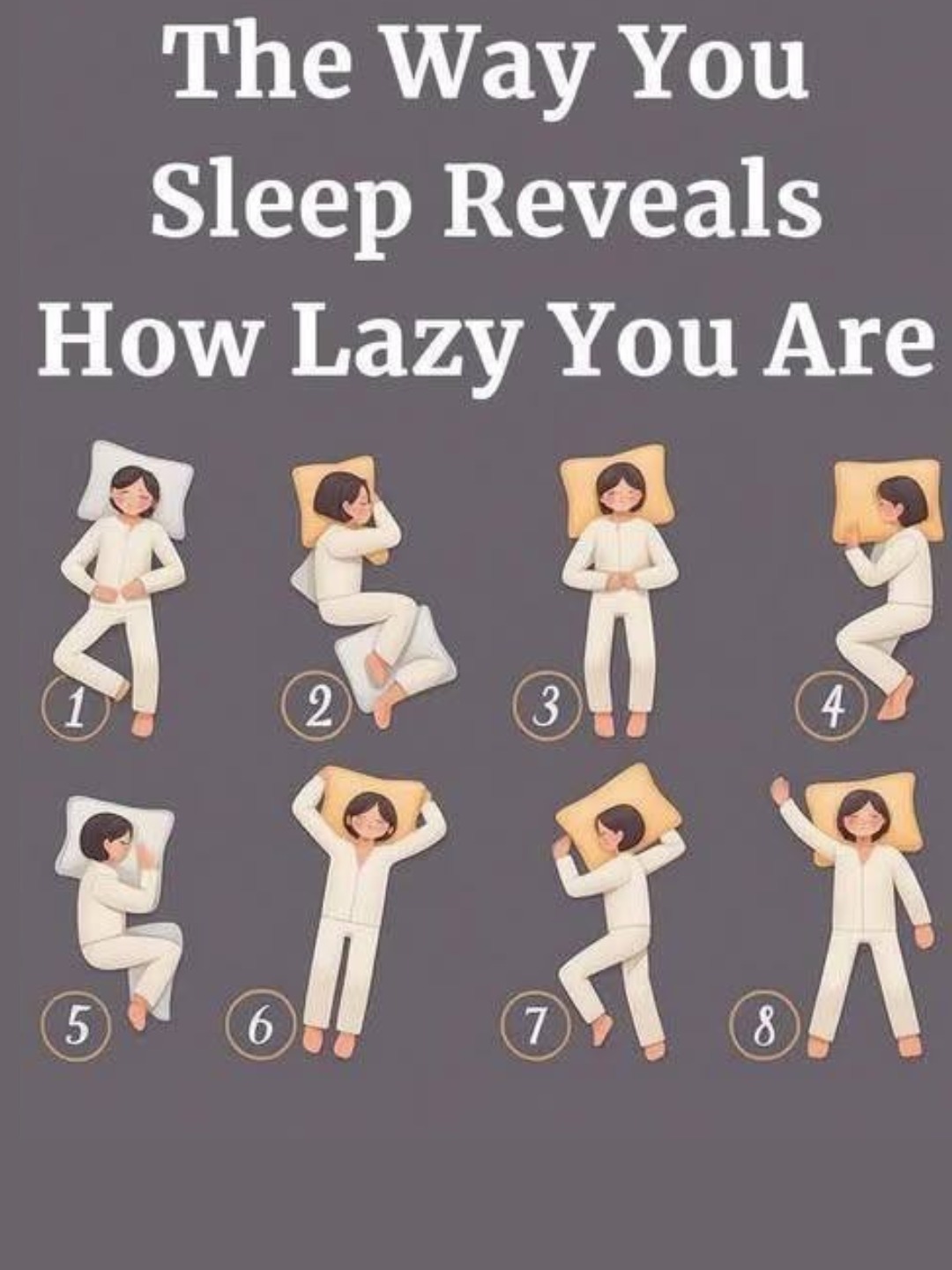The most common sleep positions:
✅
Fetal (curled up)
Most popular — especially among women. May help with digestion or reduce snoring. Not a sign of being “closed off” or “stressed.”
✅
On Your Back (supine)
Helps prevent acid reflux and facial wrinkles. Linked to more dreams — but also more snoring.
✅
On Your Stomach (prone)
Can relieve snoring for some — but may strain the neck and spine. Often chosen for comfort, not control issues.
✅
On Your Side (log or yearner)
Most common overall. Supports breathing, especially in people with sleep apnea.
✅ Bottom line: We shift positions dozens of times per night. No single pose defines who you are.
❌ Debunking the Myths: What Your Sleep Position Does Not Reveal
Despite viral articles claiming otherwise, sleep posture does NOT reliably indicate:
Whether you’re “lazy” or “driven”
Your emotional state
Your leadership skills
Your willingness to help others
Or your moral character
These ideas come from pseudoscience, not psychology.
Why These Claims Are Harmful:
They shame natural behavior
Calling someone “lazy” because they sprawl out while sleeping is absurd — and unfair.
They pathologize rest
Rest isn’t failure. It’s biological necessity.
They confuse correlation with causation
Just because someone curls up doesn’t mean they’re anxious — they might just be cold.
💡 What Your Sleep Habits Can Tell You (When Done Right)
While position alone doesn’t reveal personality, your overall sleep patterns can offer real insights into your well-being.
Ask yourself:
✅ Do I wake up stiff or in pain?
Could signal poor mattress, pillow, or posture
✅ Am I exhausted despite 8 hours?
Possible sleep apnea, stress, or poor sleep quality
✅ Do I toss and turn all night?
Anxiety, caffeine, or room temperature could be factors
✅ Do I feel rested when I wake?
A true sign of good sleep hygiene
✅ These are the questions worth asking — not “Am I lazy because I sleep on my side?”
❤️ Rest Is Not a Moral Issue
Society glorifies hustle.
We wear exhaustion like a badge of honor.
And we quietly judge those who rest too much — as if energy were virtue.
But here’s the reality:
Everyone needs rest.
Everyone deserves deep, uninterrupted sleep.
And no one becomes less valuable because they nap, sleep late, or stretch out across the bed.
Being tired doesn’t make you weak.
Needing a break doesn’t make you lazy.
Wanting peace at night doesn’t mean you’re broken.
It means you’re human.
🛌 How to Support Healthy Sleep (Without Judging Yourself)
Instead of analyzing your sleep position for hidden meaning, try focusing on what actually matters:
✅ 1. Prioritize Consistency
Go to bed and wake up around the same time every day — even on weekends.
✅ 2. Create a Restful Environment
Cool, dark, quiet room
Comfortable mattress and pillows
No screens 30–60 minutes before bed
✅ 3. Listen to Your Body
If you’re tired, rest.
If you’re stressed, pause.
If you need help, ask.
✅ 4. Stop Shaming Yourself for Sleeping
Sleep isn’t wasted time.
It’s when your brain detoxes, your body repairs, and your emotions reset.
💬 Final Thoughts: You Are Not Lazy for Wanting to Rest
We live in a world that measures worth by productivity.
But your value isn’t tied to how much you do.
It’s tied to how deeply you care — for others, and for yourself.
So if you curl up like a comma…
If you sprawl like a starfish…
If you shift 17 times in one night…
Don’t worry.
Your sleep position doesn’t reveal your work ethic.
It reveals one simple truth:
You are trying to get comfortable.
And that’s okay.
Because sometimes, the most powerful thing you can do…
Isn’t push harder.
It’s lie down, close your eyes, and let yourself rest — without guilt.
And once you give yourself permission?
You might just find that the best version of you shows up… after a good night’s sleep.
ADVERTISEMENT

